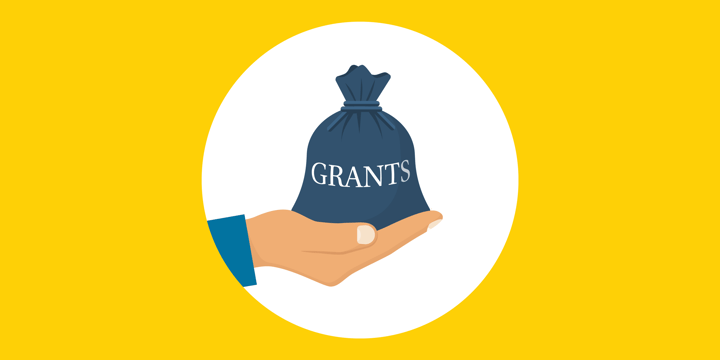Editor's note: Google AdWords has been renamed Google Ads.
More than 35,000 nonprofits are recipients of the popular Google Ad Grants. The Google Ad Grants program gives organizations up to $10,000 per month in free in-kind AdWords across the search network through the Google for Nonprofits platform.
But on December 13, 2017, the Ad Grants team announced significant changes to the program that went into effect on January 1, 2018. A statement to the international news agency Reuters read:
"We revised our Ad Grants policies to help nonprofits be more effective with AdWords and improve the quality of their ads, which will lead to targeted awareness of their projects and mission."
If you are an organization that received this notice and are still struggling to regain this grant under the new requirements, you'll likely find this post quite helpful.
What Actually Changed

The Google Ad Grant email highlighted the lifting of the $2 bid max for maximize conversions bidding. It was also an important alert that many accounts needed to make serious adjustments in the quality of their ads to remain eligible.
The big five changes that called for a restructuring of most accounts are:
- Minimum 5 percent CTR (click-through rate) accountwide. Accounts will be suspended after two consecutive months with a CTR below 5 percent
- Minimum keyword quality score of 3
- Minimum of two ad groups per campaign
- Minimum of two ads per group
- Minimum of two sitelink ad extensions
Why the Changes Occurred
Michelle Hurtado, head of Google Ad Grants, explains that the program is focusing on quality and performance. This focus will make the offer more valuable to both nonprofits and people searching for nonprofit causes.
Google employees are held to Objectives and Key Results (OKRs), a goal system that aligns ambition with measurable performance indicators. For 2018, Michelle's team is driving toward higher CTR and conversion rate in order to connect more people with social causes.
One of the big problems that has arisen with the grants is that, in order to use the full amount, many spend excess money on broader terms that may not apply to the organization rather than losing the chance to spend the money. "Ads for terms like 'movies' or 'children' are common in accounts looking for broad awareness," Michelle pointed out. "But these rarely result in good connections made between people and nonprofits." Google wants us to also see the big picture. "The Ad Grants program is here to stay, and we hope that our policies serve as a guide on how to use Ad Grants better."
Seeing the big picture will hopefully lead to more intelligent uses of the grants across all grantees, though it is clear that there are going to be a number of growing pains. Michelle was careful to add the word "temporary" to the suspensions that have impacted a small proportion of ad grantees. "It is our goal to get these accounts back in action once the necessary changes are made to increase the quality and relevance of ads."
The Grant Remains an Effective Offer
Based on Google's data, 35,000 nonprofits spent at least $10,000 per month in 2017. (Those numbers don't account for those who were receiving the now-discontinued Grantspro, which gave $40,000 a month in ads.) And those numbers equal $4.2 billion in potential ad spend.
Without grants, most nonprofits simply can't compete in the crowded marketplaces of social media and digital advertising. For example, consider AFS-USA Intercultural Programs. It has been the leading study-abroad organization for high schoolers for over a century. It's now facing greater competition with for-profit companies that run similar, but far more expensive, programs.
To regain exposure in the crowded study-abroad marketplace, AFS and organizations in a similar position will increasingly rely on support. They need the help of platforms that believe in a greater mission and not just a one-size-fits-all pricing model for advertising. Google Ad Grants are helping AFS — and thousands of organizations like it — reclaim their spot in the front of users' minds.
How to Get Your Google Ad Grant Back
If you haven't already, make sure that your CTR for active keywords is above 5 percent and that your keywords are all relevant. The Google AdWords customer service team is quite helpful and can assist you in this effort.
To regain your Ad Grants, you need to follow the details of Google's notice, completely removing irrelevant keywords and ads. Then consider contacting the Google AdWords support line and explain that your grant was "temporarily suspended" due to Ad Grants' policies. They should be able to help you understand exactly which ads, groups, or keywords caused the issue.
Additional Resources: Google Ad Grants, Google Analytics, and Your Nonprofit Website
- Apply for a Google Ad Grant on the Google for Nonprofits platform.
- Check out TechSoup's courses on Google Analytics for nonprofits.
- Learn more about search engine optimization for your nonprofit website.








